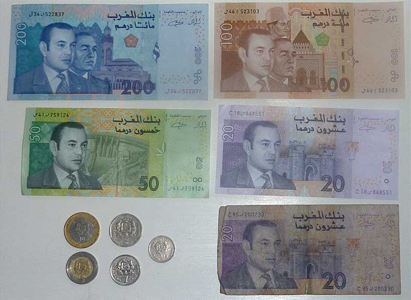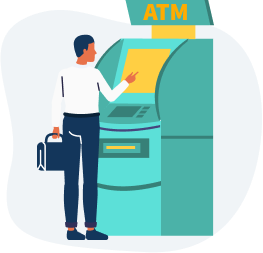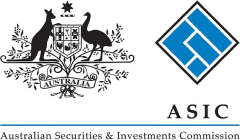Currency in Morocco
A Travel Money Guide to Morocco
The attraction to Morocco is endless with it tantalising food markets, amazing mosaics, rich historic cities and desert visits on camel. But it isn’t a budget destination and to get the most out of your trip, it’s a good idea to learn everything you can about the local currency and payment options before you go.
The currency used in Morocco
The currency everyone uses in Morocco is the Moroccan Dirham, which has the international code MAD and the symbol DH. Moroccan banknotes have 4 denominations: 20, 50, 100 and 200. The Dirham has 2 types of coins, dirham and centimes.
Dirham coins: 1dh, 2dh, 5dh, and 10dh
Centimes: 10, 20, and 50

Using Your Bank Card in Morocco
Most Moroccan businesses are well set up to receive card payments. Some of the best travel money cards include debit, credit and prepaid cards. But before you use your bank card willy-nilly, it’s worth reading up on the fees and charges you might incur.
Debit Cards
You’ll probably want a debit card if you plan to withdraw money from an ATM. While you may also be able to pay with a debit card in some businesses in the major destinations, you might discover some hefty fees on your account summary.
Depending on your bank, you could be hit with fees for foreign ATM withdrawals or currency conversions. But some banks are better than others; we recommend checking out Wise, ING and Revolut, all of which have travel-friendly debit cards that waive these charges.


Credit Cards
Credit cards can come with some enticing perks, including added security, loyalty programs, and even free travel insurance.
But are they worth it?
Major local businesses, including hotels, restaurants, airline offices, and department stores, accept credit cards. But you might have to pay a surcharge.
Mastercard and Visa are widely accepted. You may also be able to use your American Express card, though local ATMs won’t accept them.
Just be aware of additional charges you may incur for foreign transactions. These could include:
- International transaction fees
- High exchange rate margins
- ATM fees
- Potential ‘cash advance fees’ if you use an ATM
If you still prefer credit cards over any other payment, consider going with a company that offers cards that waive certain travel fees. Bankwest Platinum and 28 Degrees both have travel-friendly cards.
Prepaid Travel Cards
The biggest advantages of prepaid travel cards are that you can lock in a favourable exchange rate. You also get a handy back-up card.
Just remember that while they are convenient, you could end up paying a long list of hidden fees. Many travel cards still impose:
- Currency conversion fees
- Uncompetitive exchange rates
- International ATM withdrawal fees
- Initial load fees
- Reload fees
- Inactivity fees

How to Buy Moroccan Dirham Before You Go
There’s a certain reassurance that comes with stepping off the plane (or cruise ship) already cashed up with Moroccan Dirham.
Buying Moroccan Dirham before you leave Australian shores isn’t just convenient. It can also save you money. But it all depends on where you get your Moroccan Dirham in Australia. There are 3 main options:
- Buy MAD online and have it delivered or collect it in-store
- Swap Moroccan Dirham for Australian dollar from a money changer
- Buy your Moroccan currency at your home airport
Try S Money or a similar online currency exchange store to get rates that reflect the comparisons you see on XE or Google.
If you choose online delivery or in-store pickup, check the processing time. Some exchange companies with online options suggest you allow between two and five days to process currency.
Prefer in-store currency exchange? Head to the CBD of your nearest city for the most competitive exchange rates; suburban bureau de change outlets tend to have poorer rates and fees.
Currency exchange counters in Australia’s airports are infamous for their atrocious exchange rates. Avoid them if you can.
How Much Cash Should I Bring to Morocco?
Thanks to the surplus of ATMs and the ease of plastic payments, there’s not too much pressure on you to bring the exact amount of cash you need from the get-go.
Still, it’s a good idea to have a general daily budget to help you cost out the trip and make sure you don’t have leftover dirhams at the end of your stay.
The average daily travel budget in Morocco is about $160. Some of the expenses you might be looking at include:

$100 per night
A double room in a hotel

$20
A meal at a restaurant

$4
A local beer

$20
A one-way public transport ticket

$15
Entrance ticket to a show or exhibit
How to Exchange Currency in Morocco
Places like Rabat, and Casablanca receive great numbers of tourists, so there are facilities to cater to money exchanges. Beyond these major destinations, it’s best to get cash before you venture into remote territory.

ATMs
We’re all used to getting our cash out at ATMs so it seems like the most convenient way to secure local cash abroad. There are lots of BMCE (Banque Marocaine du Commerce Extérieur) and BMCI (Banque Marocaine pour le Commerce et l’Industrie) ATMs at the Mohammed V International Airport, making things extra easy.
Morocco is largely a cash driven society and it’s worth noting that some ATMs are only accessible during the bank’s opening hours. And even when they are open 24/7, they might not necessarily offer the best value.
Depending on your bank, you may have to pay for overseas ATM withdrawals and Morocco currency. To reduce the amount you’ll pay in fees, try to withdraw just the right amount of money you’ll need for the duration of your trip.
Don’t forget: Let your bank know you’re travelling! If they detect a foreign transaction but aren’t aware you’re overseas, they could end up freezing your card.
Currency Exchange in Morocco
You won’t have any problem changing money in the major cities, such as Marrakesh, Casablanca or Fez. There are plenty of bureaus de change at Mohammed V International Airport.
Morocco is one of the few places were exchange rates are fixed by law and charging high commissions is forbidden, so money changers don’t tend beat the banks by a lot. However, banks only exchange currencies on weekdays. Don’t exchange money with people on the street, as you are likely to be scammed.


Travellers Cheques
Not worth the bother! Travellers cheques are so outdated, very few banks even accept them any more.
They can’t be used as direct payment, so the only way to use them once you’re in the country is to swap them for currency at a bank or bureau de change office. Even then, very few banks will accept travellers cheques if you don’t have an account with them. And exchange services apply exorbitant fees and rates to them.


